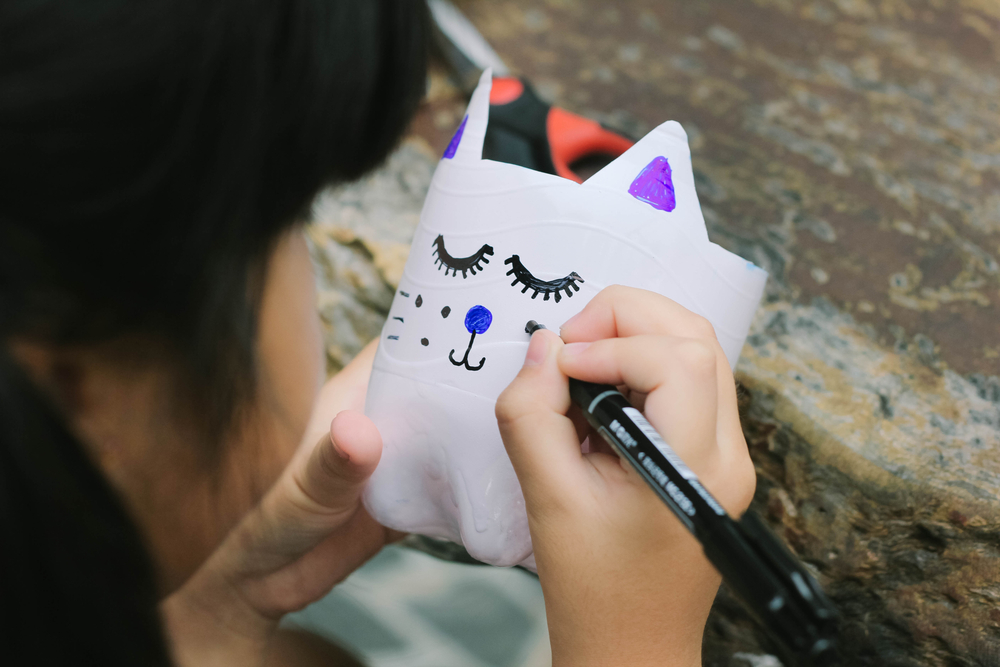Critical thinking skills Science Worksheets for 5-Year-Olds
5 filtered results
-
From - To
Nurture your child's curiosity with our “Critical Thinking Skills Science Worksheets for 5-Year-Olds.” Designed to inspire young minds, these printable activities encourage observation, questioning, and problem-solving. Each worksheet blends fun with educational content, covering nature, basic physics, and simple experiments. Perfect for developing fine motor skills and foundational scientific understanding, our worksheets help children explore the world around them. With engaging graphics and interactive tasks, your 5-year-old will gain critical thinking skills while enjoying the learning process. Ideal for at-home education or supplemental classroom material, watch as your child's cognitive abilities grow with each worksheet. Explore now and foster a love for science!
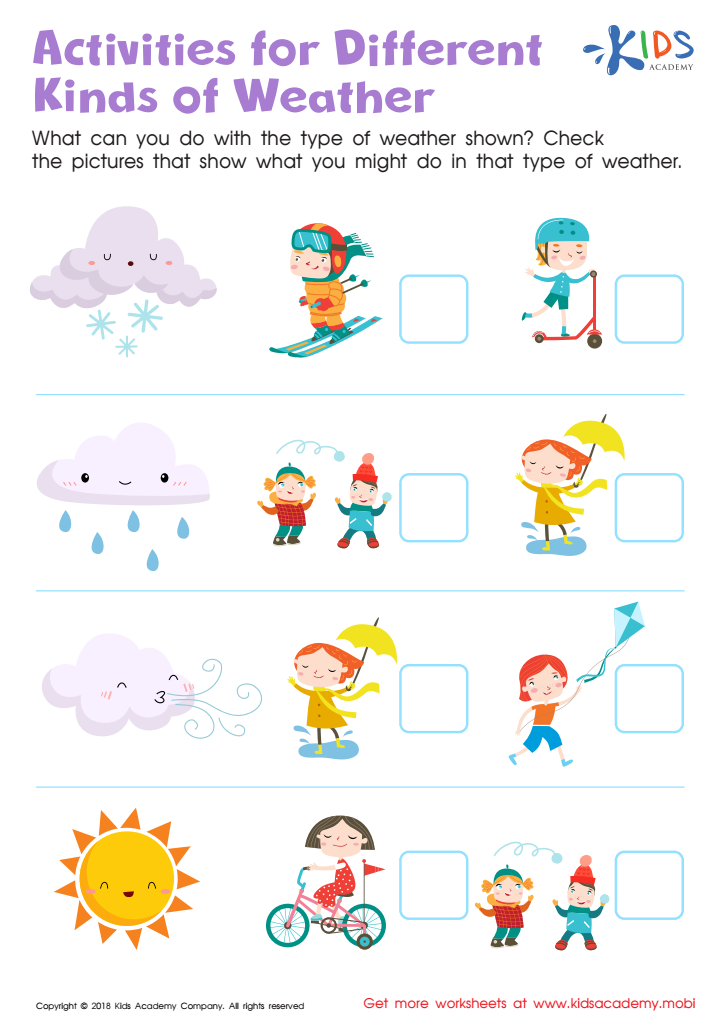

Activities for Different Kinds of Weather Worksheet
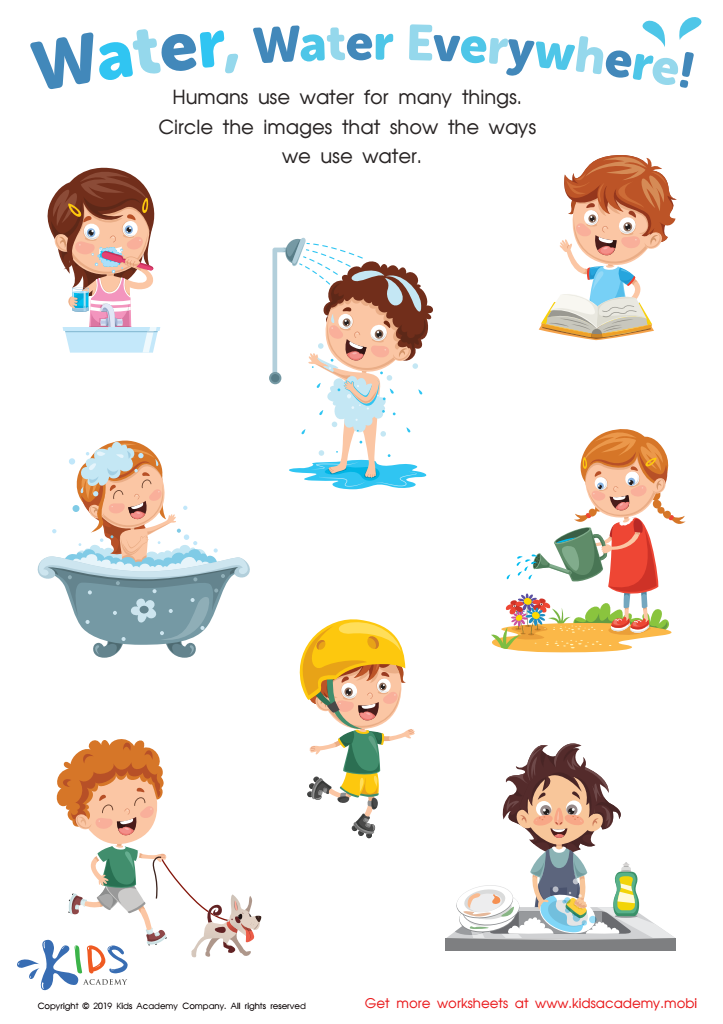

Water, Water Everywhere! Worksheet
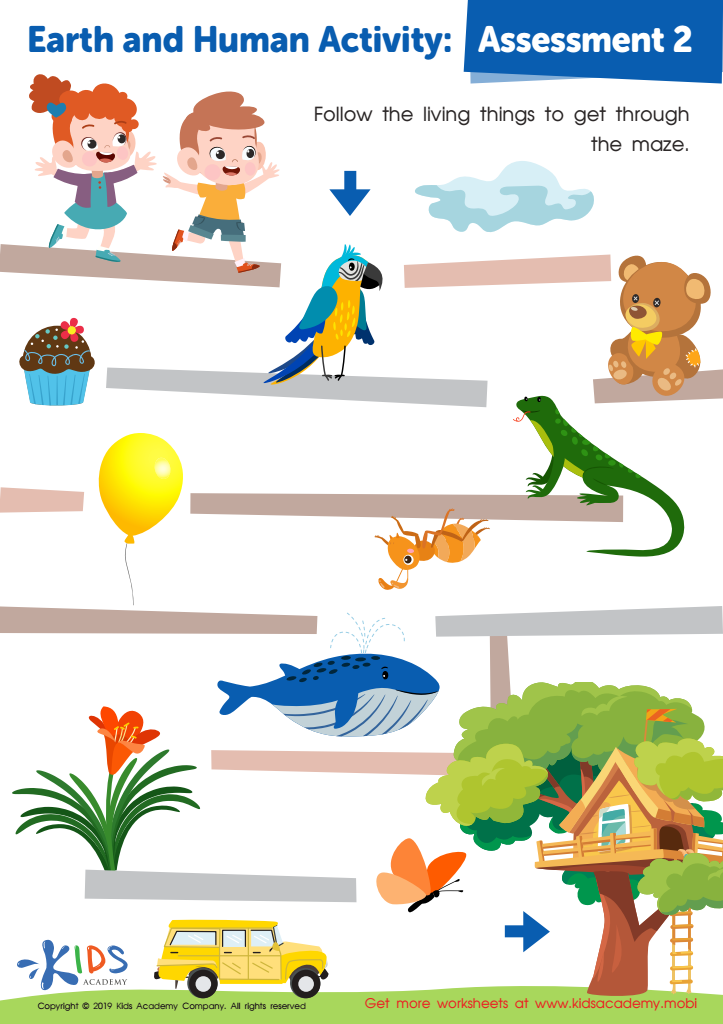

Earth and Human Activity: Assessment 2 Worksheet
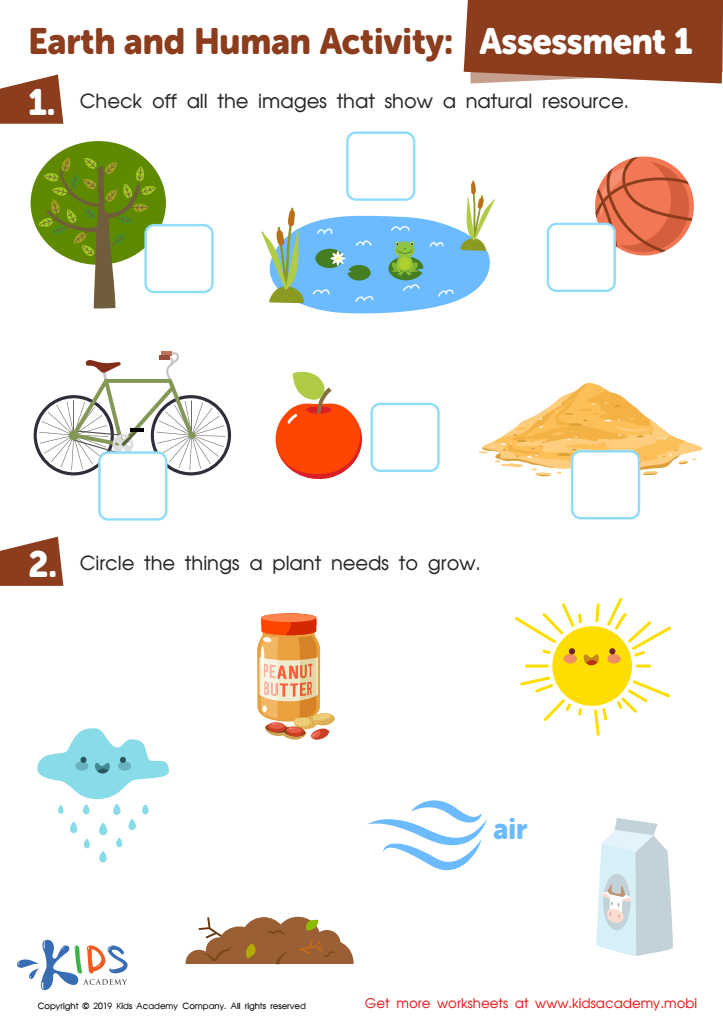

Earth and Human Activity: Assessment 1 Worksheet
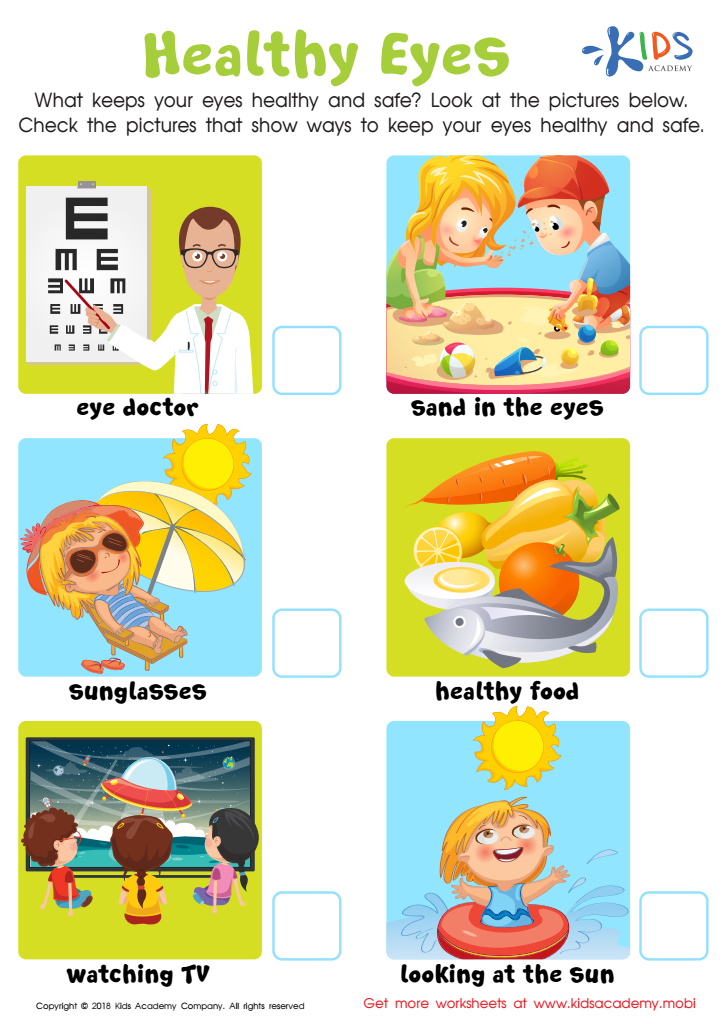

Healthy Eyes Worksheet
Cultivating critical thinking skills in young children, including 5-year-olds, is incredibly important, especially when it comes to science education. At this impressionable age, children's brains are rapidly developing, and they are naturally curious and full of questions about the world around them. By integrating critical thinking into science education early on, parents and teachers can help children develop a strong foundation for problem-solving, logical reasoning, and analytical skills.
Teaching critical thinking in science doesn't mean introducing overly complex concepts; it's about fostering a mindset of inquiry. Activities such as simple experiments, asking "what if" questions, and encouraging observation and prediction skills can make science both fun and educational. For example, examining how plants grow or why ice melts can teach kids about cause and effect while also sharpening their reasoning abilities.
Parents and teachers should care because these skills are not only crucial for academic success but also for everyday decision making. As children grow, the ability to think critically will help them navigate an increasingly complex world, both in terms of personal decisions and understanding broader societal issues. Moreover, fostering a love for science and critical thinking early on can inspire lifelong learning and curiosity, laying the groundwork for future innovations and problem-solvers in any field.

 Assign to My Students
Assign to My Students




.jpg)



